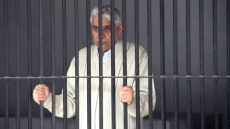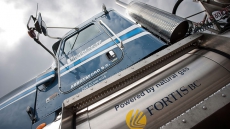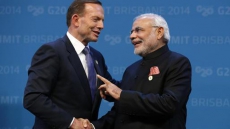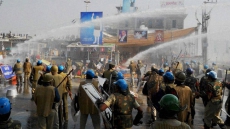India has convinced world leaders that black money needs to be fought as it promotes terrorism and destabilizes world peace, Prime Minister Narendra Modi said Friday.
Writing in his blog a day after ending a 10-day trip to Myanmar, Australia and Fiji, Modi also said that the world was now looking at India with renewed respect and immense enthusiasm.
He said India placed the issue of existence and repatriation of black money at the forefront - at the G-20 summit in Australia. And the G-20 had agreed to battle black money.
"I am glad the world community took note of this because this is an issue that does not selectively affect one nation," he said.
"The menace of black money has the potential to destabilize world peace and harmony.
"Black money also brings with it terrorism, money laundering and narcotics trade," he said.
Modi also said that the Indian diaspora must be a part of the country's development.
Underlining the "historic uniqueness" of his trip, he said he met a total of 38 world leaders and had 20 bilateral meetings during which he had "frank, comprehensive and fruitful" discussions.
"During these bilateral meetings, I noticed one thing -- that the world is looking at India with renewed respect and immense enthusiasm! I see a global community that is tremendously keen to engage with India."
Modi said his was the first bilateral visit to Australia by an Indian prime minister in 28 years. Fiji witnessed such a visit after 33 years.
On his first halt in Myanmar, Modi attended the East Asia and the ASEAN summits before getting into bilaterals with Myanmar leaders. He took part in the G-20 Summit in Australia. He then went to Fiji.
Modi said he and his Australian counterpart Tony Abbott made "unprecedented progress in the areas of energy, culture and security and are moving very positively on the issue of nuclear energy".
Modi said India and the ASEAN "can explore new frontiers together".
He said strengthening trade and commerce and drawing industry to India was a central part of the discussions he had during the visit.
"Numerous leaders I met were very optimistic about our 'Make in India' initiative and are keen to come to India and be a part of the extensive and diverse opportunities India has to offer.
"I see this as a positive sign."
The prime minister said India can do a lot for Fiji and other Pacific Island nations and "there is a lot we can learn from them".
"I discussed affordable housing with PM (Najib Tun) Razak of Malaysia, energy issues with the Sultan of Brunei (Hassanal Bolkiah) and urban development issues with PM Lee Hsien Loong of Singapore."
Modi said he was "convinced, with even greater consciousness, of the positive difference India can make on the world stage".
"We want to create an environment where our diaspora also feel that they can contribute towards India's development journey."
Modi paid tributes to the Indian diaspora.
"On a personal note, the affection (I got) from the Indian community was touching," Modi said. "Be it in Myanmar, Australia and Fiji, I will not be able to describe their warmth in words.
"I could see that they were proud of India and the changes happening in India. I could see dreams and expectations in their eyes.
"As I said during the Indian community programme in Sydney, we are fully aware of the expectations and we will leave no stone unturned in creating the India of their dreams," he added.
Modi announced visa-on-arrival facilities during the visit.
"It is our aim to make the diaspora an integral part of our development journey and since the last few months we have channelised our efforts in this regard."






